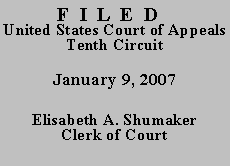

| UNITED STATES OF AMERICA,
Plaintiff-Appellee, v. EFRAIN MENDOZA BARBOSA, also known as Juan Jose Alverez, Defendant-Appellant. |
|
Mr. Barbosa filed a notice of appeal challenging his sentence. The government has filed a motion to enforce the appeal waiver in its plea agreement with Mr. Barbosa. In response, Mr. Barbosa's attorney filed an Anders brief stating her belief that there are no meritorious grounds upon which Mr. Barbosa can appeal his sentence or urge denial of the government's motion to enforce the appeal waiver, and she requested permission to withdraw as counsel. See Anders v. California, 386 U.S. 738, 744 (1967) (authorizing counsel to request permission to withdraw where counsel conscientiously examines a case and determines that an appeal would be wholly frivolous). This court gave Mr. Barbosa an opportunity to file a pro se response to the motion to enforce, see id., and granted him an extension of time to file his response to the motion. To date, Mr. Barbosa has not filed a response to the motion to enforce.
Under Anders, we have conducted an independent review and examination of the motion to enforce. See id. This court will enforce a criminal defendant's waiver of his right to appeal so long as the following three elements are satisfied: (1) "the disputed appeal falls within the scope of the waiver of appellate rights," (2) the defendant's waiver of his appellate rights was knowing and voluntary, and (3) enforcing the waiver will not result in a miscarriage of justice. United States v. Hahn, 359 F.3d 1315, 1325 (10th Cir. 2004) (en banc) (per curiam). We have reviewed the plea agreement, the transcripts of the plea and sentencing hearings, and the response from Mr. Barbosa's counsel, and we conclude that the Hahn factors have been satisfied.
Accordingly, we GRANT the government's motion to enforce the appeal waiver in the plea agreement, GRANT counsel's motion to withdraw, and DISMISS the appeal. The mandate shall issue forthwith.
Entered for the Court
*. This panel has determined unanimously that oral argument would not materially assist the determination of this appeal. See Fed. R. App. P. 34(a)(2); 10th Cir. R. 34.1(G). The case is therefore ordered submitted without oral argument. This order and judgment is not binding precedent, except under the doctrines of law of the case, res judicata, and collateral estoppel. It may be cited, however, for its persuasive value consistent with Fed. R. App. P. 32.1 and 10th Cir. R. 32.1.